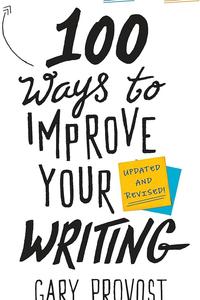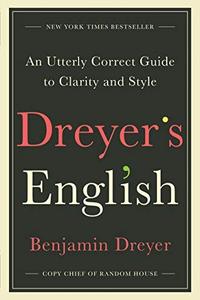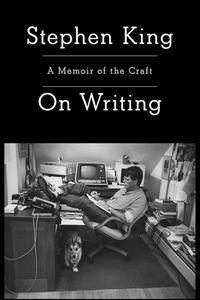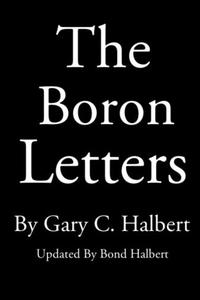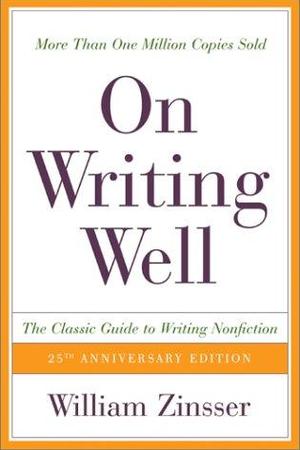
On Writing Well by William Zinsser: Summary & Notes
by William Zinsser
In One Sentence
Good writing is clear thinking made visible—strip away clutter, write with humanity, and rewrite relentlessly.
Key Takeaways
- Clutter is the disease of writing—remove every unnecessary word
- Write for yourself first; if you're bored, the reader will be too
- Unity is crucial: one mood, one pronoun, one tense
- Use active verbs and concrete nouns; avoid passive voice and abstractions
- Rewriting is the essence of writing—there is no good writing, only good rewriting
- Write with humanity—let your personality show
Summary
The best book on writing non-fiction I have read. Where Dreyer’s English and The Elements of Style focus on grammar and words, On Writing Well goes deeper and covers specific genres, composition, interviewing, and more. If I had to recommend one book on how to write non-fiction well, this would be it.
Who Should Read This Book
- Anyone who writes professionally—journalists, bloggers, business writers
- Students wanting to improve academic and personal writing
- Non-fiction writers seeking clarity and craft
- Those who find their writing feels flat or unclear
FAQ
What is Zinsser's main writing advice?
Simplify. Cut every word that doesn't do useful work. Fight clutter—unnecessary adjectives, redundant phrases, jargon. Write one idea per sentence. Be yourself. Rewrite until every word counts. Good writing is stripped-down writing.
📖 Chapter-by-Chapter Breakdown
Click to expand the full detailed notes for every chapter →
📖 Chapter-by-Chapter Breakdown
Click to expand the full detailed notes for every chapter →
Notes
Introduction
- Two things happened with the arrival of the word processor: good writers got better and bad writers got worse.
Part I - Principles
2 - Simplicity
- The secret of good writing is to strip every sentence to its cleanest components.
- Clear thinking becomes clear writing; one can’t exist without the other.
- Writers must therefore constantly ask: what am I trying to say? Surprisingly often they don’t know. Then they must look at what they have written and ask: have I said it? Is it clear to someone encountering the subject for the first time?
- Try to avoid all words that end in “-ly”. Avoid words like “experiencing”.
- If you might add, add it. If it should be pointed out, point it out. If it is interesting to note, make it interesting; are we not all stupefied by what follows when someone says, "This will interest you"?
- Simplify, simplify.
4 - Style
- Be yourself.
- To do this, you must relax, and have confidence.
- I urge people to write in the first person: to use "I" and “me" and “we" and “us." They put up a fight.
- If you aren’t allowed to use “I", at least think “I" while you write, or write the first draft in the first person and then take the "I"s out. It will warm up your impersonal style.
5 - The Audience
- Soon after you confront the matter of preserving your identity, another question will occur to you: "Who am I writing for?"
- It’s a fundamental question, and it has a fundamental answer: You are writing for yourself.
- Never say anything in writing that you wouldn’t comfortably say in conversation.
6 - Words
- If all your sentences move at the same plodding gait, which even you recognize as deadly but don’t know how to cure, read them aloud.
- There is a kind of writing that might be called journalese, and it’s the death of freshness in anybody’s style. It’s the common currency of newspapers and of magazines like People—a mixture of cheap words, made-up words and clichés that have become so pervasive that a writer can hardly help using them. You must fight these phrases or you’ll sound like every hack.
- What is “journalese"? It’s a quilt of instant words patched together out of other parts of speech. Adjectives are used as nouns (“greats", “notables"). Nouns are used as verbs ("to host"), or they are chopped off to form verbs (“enthuse", “emote"), or they are padded to form verbs ("beef up", "put teeth into"). This is a world where eminent people are “famed" and their associates are “staffers", where the future is always “upcoming" and someone is forever "firing off" a note. Nobody in America has sent a note or a memo or a telegram in years.
- Use a dictionary, and use a dictionary of synonyms. Avoid journalese.
Part II - Methods
8 - Unity
- You learn to write by writing. It’s a truism, but what makes it a truism is that it’s true. The only way to learn to write is to force yourself to produce a certain number of words on a regular basis.
- In fact, any tone is acceptable. But don’t mix two or three.
- Therefore ask yourself some basic questions before you start. For example:
- In what capacity am I going to address the reader? (Reporter? Provider of information? Average man or woman?)
- What pronoun and tense am I going to use? What style?" (Impersonal reportorial? Personal but formal? Personal and casual?)
- What attitude am I going to take toward the material? (Involved? Detached? Judgmental? Ironic? Amused?)
- How much do I want to cover? What one point do I want to make?
- Every writing project must be reduced before you start to write.
- Therefore think small. Decide what corner of your subject you’re going to bite off, and be content to cover it well and stop.
- As for what point you want to make, every successful piece of nonfiction should leave the reader with one provocative thought that he or she didn’t have before.
9 - The Lead and the Ending
- The most important sentence in any article is the first one. If it doesn’t induce the reader to proceed to the second sentence, your article is dead. And if the second sentence doesn’t induce him to continue to the third sentence, it’s equally dead. Of such a progression of sentences, each tugging the reader forward until he is hooked, a writer constructs that fateful unit, the “lead."
- Therefore your lead must capture the reader immediately and force him to keep reading. It must cajole him with freshness, or novelty, or paradox, or humor, or surprise, or with an unusual idea, or an interesting fact, or a question.
- Next the lead must do some real work. It must provide hard details that tell the reader why the piece was written and why he ought to read it. But don’t dwell on the reason. Coax the reader a little more; keep him inquisitive.
- One moral of this story is that you should always collect more material than you will use.
- Another moral is to look for your material everywhere, not just by reading the obvious sources and interviewing the obvious people.
- Knowing when to end an article is far more important than most writers realize. You should give as much thought to choosing your last sentence as you did to your first. Well, almost as much.
- The perfect ending should take your readers slightly by surprise and yet seem exactly right. They didn’t expect the article to end so soon, or so abruptly, or to say what it said. But they know it when they see it. Like a good lead, it works.
- For the nonfiction writer, the simplest way of putting this into a rule is: when you’re ready to stop, stop. If you have presented all the facts and made the point you want to make, look for the nearest exit.
- But what usually works best is a quotation. Go back through your notes to find some remark that has a sense of finality, or that’s funny, or that adds an unexpected closing detail.
- Surprise is the most refreshing element in nonfiction writing. If something surprises you it will also surprise—and delight—the people you are writing for, especially as you conclude your story and send them on their way.
10 - Bits & Pieces
VERBS.
- Use active verbs unless there is no comfortable way to get around using a passive verb.
- Short is better than long.
ADVERBS.
- Most adverbs are unnecessary.
ADJECTIVES.
- Most adjectives are also unnecessary.
- Again, the rule is simple: make your adjectives do work that needs to be done.
LITTLE QUALIFIERS
- Prune out the small words that qualify how you feel and how you think and what you saw: "a bit", "a little", "sort of", "kind of", "rather", "quite", "very", "too", "pretty much", "in a sense" and dozens more. They dilute your style and your persuasiveness.
MOOD CHANGERS
- Learn to alert the reader as soon as possible to any change in mood from the previous sentence.
CONTRACTIONS.
- Your style will be warmer and truer to your personality if you use contractions like "I’ll" and "won’t" and "can’t" when they fit comfortably into what you’re writing.
- I only suggest avoiding one form—"I’d", "he’d", "we’d", etc.—because "I’d" can mean both "I had" and "I would", and readers can get well into a sentence before learning which meaning it is.
THAT AND WHICH
- Always use "that" unless it makes your meaning ambiguous.
THE QUICKEST FIX.
- Surprisingly often a difficult problem in a sentence can be solved by simply getting rid of it.
REWRITING
- Rewriting is the essence of writing well: it’s where the game is won or lost.
GO WITH YOUR INTERESTS
- No area of life is stupid to someone who takes it seriously. If you follow your affections you will write well and will engage your readers.
- Write about your hobbies: cooking, gardening, photography, knitting, antiques, jogging, sailing, scuba diving, tropical birds, tropical fish.
- Write about your work: teaching, nursing, running a business, running a store.
- Write about a field you enjoyed in college and always meant to get back to: history, biography, art, archaeology.
- No subject is too specialized or too quirky if you make an honest connection with it when you write about it.
12 - Writing About People
The Interview
- Get people talking. Learn to ask questions that will elicit answers about what is most interesting or vivid in their lives. Nothing so animates writing as someone telling what he thinks or what he does—in his own words.
13 - Writing About Places
The Travel Article
- Next to knowing how to write about people, you should know how to write about a place. People and places are the twin pillars on which most nonfiction is built. Every human event happens somewhere, and the reader wants to know what that somewhere was like.
- How can you overcome such fearful odds and write well about a place? My advice can be reduced to two principles—one of style, the other of substance.
- First, choose your words with unusual care. If a phrase comes to you easily, look at it with deep suspicion; it’s probably one of the countless clichés that have woven their way so tightly into the fabric of travel writing that you have to make a special effort not to use them.
- As for substance, be intensely selective. If you are describing a beach, don’t write that "the shore was scattered with rocks" or that "occasionally a seagull flew over." Shores have a tendency to be scattered with rocks and to be flown over by seagulls. Eliminate every such fact that is a known attribute: don’t tell us that the sea had waves and the sand was white.
- Your main task as a travel writer is to find the central idea of the place you’re dealing with.
- Finally, however, what brings a place alive is human activity: people doing the things that give a locale its character.
- Never be afraid to write about a place that you think has had every last word written about it. It’s not your place until you write about it.
16 - Business Writing
Writing in Your Job
- The way to warm up any institution is to locate the missing "I". Remember: “I" is the most interesting element in any story.
19 - Humor
- This heightening of some crazy truth—to a level where it will be seen as crazy—is the essence of what serious humorists are trying to do.
- "I’m here and I’m involved": make that your creed if you want to write serious humor. Humorists operate on a deeper current than most people suspect.
PART IV - Attitudes
20 - The Sound of Your Voice
- Don’t alter your voice to fit your subject. Develop one voice that readers will recognize when they hear it on the page, a voice that’s enjoyable not only in its musical line but in its avoidance of sounds that would cheapen its tone: breeziness and condescension and clichés.
21 - Enjoyment, Fear and Confidence
- Living is the trick. Writers who write interestingly tend to be men and women who keep themselves interested.
- If you write about subjects you think you would enjoy knowing about, your enjoyment will show in what you write. Learning is a tonic.
- If you want your writing to convey enjoyment, write about people you respect.
- The moral for nonfiction writers is: think broadly about your assignment.
- I mention this to give confidence to all nonfiction writers: a point of craft. If you master the tools of the trade—the fundamentals of interviewing and of orderly construction—and if you bring to the assignment your general intelligence and your humanity, you can write about any subject. That’s your ticket to an interesting life.
23 - A Writer’s Decisions
- The hardest decision about any article is how to begin it. The lead must grab the reader with a provocative idea and continue with each paragraph to hold him or her in a tight grip, gradually adding information.
- Now, what do your readers want to know next? Ask yourself that question after every sentence.
- At such moments I ask myself one very helpful question: "What is the piece really about?" (Not just "What is the piece about?") Fondness for material you’ve gone to a lot of trouble to gather isn’t a good enough reason to include it if it’s not central to the story you’ve chosen to tell. Self-discipline bordering on masochism is required.
- As a nonfiction writer you must get on the plane. If a subject interests you, go after it, even if it’s in the next county or the next state or the next country. It’s not going to come looking for you.
- Decide what you want to do. Then decide to do it. Then do it.
25 - Write as Well as You Can
- Where, then, is the edge? Ninety percent of the answer lies in the hard work of mastering the tools discussed in this book. Add a few points for such natural gifts as a good musical ear, a sense of rhythm and a feeling for words. But the final advantage is the same one that applies in every other competitive venture. If you would like to write better than everybody else, you have to want to write better than everybody else. You must take an obsessive pride in the smallest details of your craft.
- But finally the purposes that writers serve must be their own. What you write is yours and nobody else’s. Take your talent as far as you can and guard it with your life. Only you know how far that is; no editor knows. Writing well means believing in your writing and believing in yourself, taking risks, daring to be different, pushing yourself to excel. You will write only as well as you make yourself write.
